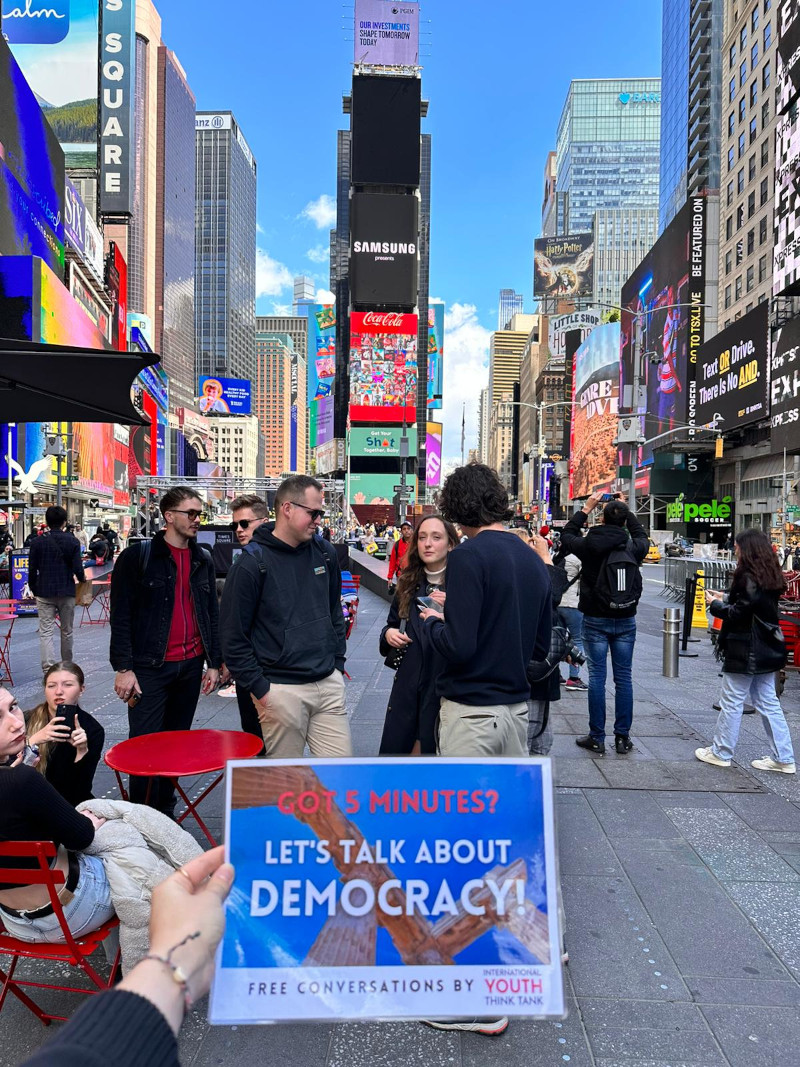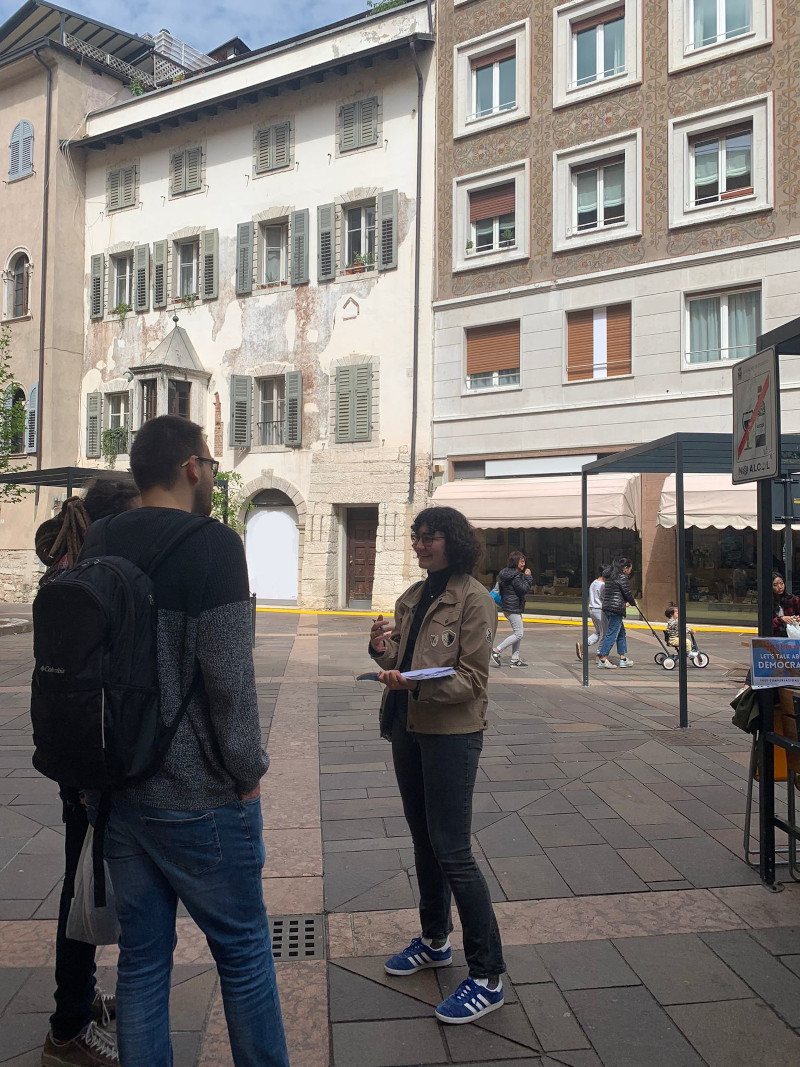From New York City to Kiev
17 June
From Tokyo to Venice, From New York City to Kiev: between April 28th and May 1st 2023, the Open Chair Democracy Talks Campaign reached four continents. Building upon last year’s success, the IYTT ran 15 Open Chair Democracy Talks worldwide, inviting people from all backgrounds to reflect on their role as democratic citizens.
These four questions echoed during the campaign weekend all across the planet:
• What are the first 3 words that come to your mind when you think about democracy?
• Do you feel free when it comes to choosing your life’s path?
• Do you feel like you have any power as a citizen?
• What would need to change for you to be more powerful?

Taking part in an OCDTs has zero requirements. All you need to do is be there and sit on that chair. This way, IYTT’s youth fellows and external volunteers were able to strike conversations with the broadest range of people, of all ages and backgrounds. Despite the diversity of respondents, many of their answers resonate with each other. A call for more direct democracy and more ways to have a say on local politics came from respondents from Stockholm as it did from those of Nicosia. People in Kaduna, NIgeria denounced the same gender-based discrimination as faced by respondents from Cadiz, Spain.

This year, two more questions were added to the classic OCDTs set. They focused on artificial intelligence and its possible impact on democracy. People from all continents expressed mixed feelings about AI: excitement on one side, fear on the other. The answers to the AI questions will be presented at the annual GPAI conference in Montreal, to take place in September 2023.
As another follow-up to the OCDT campaing, in early June, a team of 12 youth fellows travelled to Strasbourg to carry out a workshop on Open Chair Democracy Talks at the European Parliament. The workshop was part of the European Youth Event, a two-day meeting of thousands of young Europeans in the heart of the EU. This was an excellent opportunity for youth fellows to discuss the answers to the latest OCDTs campaign, as well as to instruct participants to run OCDTs themselves.
Read the results from the OCDTs here.
Michele Castrezzati
Youth Fellow

